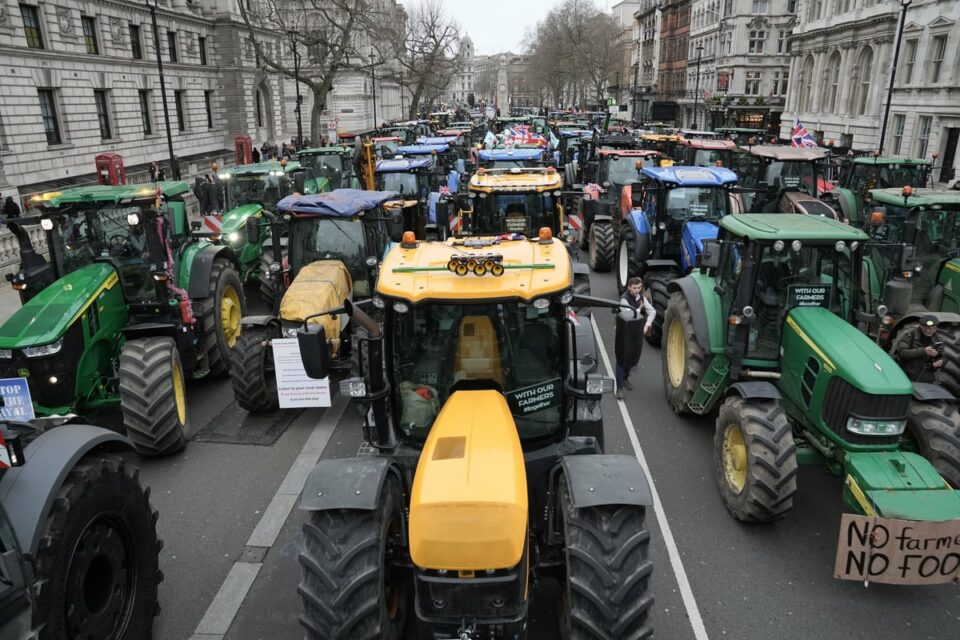“`html
Tractor Parade Hits Central London: Farmers Rally Against Inheritance Tax Proposals!
The Background of the Inheritance Tax Debate
In recent months, the UK government’s inheritance tax proposals have raised eyebrows among many sectors, particularly in agriculture. Farmers are concerned that these changes could undermine the ability to pass down family farms from one generation to the next.
What Happened During the Tractor Parade?
On a crisp autumn day, the streets of Central London echoed with the sound of engines as thousands of farmers drove their tractors into the city. This striking display aimed to capture the attention of lawmakers and the public regarding the proposed inheritance tax changes. Here are key highlights:
- Date of the Parade: [Insert Date]
- Location: Central London, with a route passing key governmental buildings.
- Number of Participants: Over 1,000 tractors and thousands of farmers gathered.
- Key Messages: Fairness in inheritance tax, safeguarding the family farm, and preserving rural livelihoods.
The Proposed Changes to Inheritance Tax
Under the current proposals, significant increases to inheritance taxes could lead to devastating consequences for agricultural communities. Some key points of concern include:
- Increased tax rates that could potentially double the current obligations.
- Expanded definitions of taxable assets, including land and equipment.
- Shorter timeframes for tax payment, which could result in forced sales of farms.
Why Farmers Are Rallying Against Inheritance Tax Proposals
Farmers argue that the proposed inheritance tax changes pose an existential threat to family-owned farms across the UK. Here are some of the main reasons they oppose these proposals:
1. Financial Burden
The burden of increased taxation could force agricultural families to liquidate their assets, leading to:
- Sale of farmland
- Loss of agricultural heritage
- Increased debt due to forced compensation payments
2. Intergenerational Challenges
Passing down a farming operation to the next generation requires careful planning. Inheritance tax changes could:
- Make it economically unfeasible to hand over farms
- Disrupt established family businesses
- Result in a loss of farming skills across generations
3. Impact on Local Economies
Farming is vital to many rural economies. Increased tax pressure could lead to:
- Job losses in the agricultural sector
- Reduced regional investment
- Decreased economic sustainability
Benefits and Practical Tips for Farmers Facing Tax Changes
Despite the unsettling developments regarding inheritance tax, there are proactive measures farmers can take:
Consider Tax Mitigation Strategies
Farmers should engage with financial advisors to explore strategies that can help mitigate the impact of inheritance tax.
Investment in Agricultural Improvements
Investing in the farm can increase its overall value, ensuring that families remain solvent when facing tax obligations.
Consultation with Legal Experts
Legal advice is essential for navigating the complexities of inheritance tax laws. Farmers should consider establishing wills and trusts to optimize tax liability.


